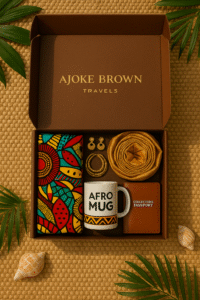Naija Bites

Nigerian street food is a sensory explosion – the sizzle of oil, the aroma of spices, and the lively chatter of vendors and customers. It’s a democratic cuisine, enjoyed by everyone regardless of social status, offering a quick and authentic taste of Nigerian life.
The Kings of Nigerian Street Food

Suya: The undisputed king of Nigerian street food, originating from the North. Thinly sliced beef, ram, or chicken, marinated in a spicy, nutty blend called yaji (ground peanuts, ginger, cayenne, and other spices), skewered, and grilled over charcoal. It’s served with fresh onions, tomatoes, and extra yaji. The smoky flavor is addictive.

Akara : Golden, crispy-on-the-outside, fluffy-on-the-inside fritters made from peeled, blended beans (usually black-eyed peas), onions, and peppers, then deep-fried. Often eaten for breakfast with bread or ogi.

Puff Puff: Sweet, airy, and soft deep-fried dough balls, akin to doughnuts, but uniquely Nigerian. A popular snack, especially for those with a sweet tooth.

Boli (Roasted Plantain): Ripe plantains roasted over an open fire, often served simply with roasted groundnuts or with a spicy pepper sauce and grilled fish. A wholesome and satisfying snack.

Dundu (Fried Yam): Cubes or slices of yam, deep-fried until golden and crispy. Commonly served as a snack or light meal with ata dindin (fried stew) or a spicy sauce.

Indomie (Nigerian Instant Noodles): While a modern phenomenon, Nigerian vendors have elevated instant noodles into a culinary art form. Cooked with vegetables, eggs, and various proteins (sausage, chicken, fish), it’s a customizable and immensely popular quick meal.

Okpa (bambara nuts): A savory, steamed pudding made from the flour of Bambara nuts, mixed with palm oil, peppers, and seasonings. It has a unique flavor and firm texture, a nutritious and filling snack, particularly in Eastern Nigeria.

Masa (Rice or maize Cakes): From Northern Nigeria, these are fermented rice cakes, often pan-fried, giving them a soft, spongy texture and a slightly sour taste. Typically eaten with miyan taushe (pumpkin soup) or a sweet sauce.

Abacha (African Salad): A refreshing and complex salad from the South-East, made from shredded, fermented cassava, ugba (oil bean), sliced garden eggs, and other garnishes, dressed with palm oil and spices. A filling snack or light meal.

Ewa Agoyin: Boiled mashed beans, served with a distinctive, dark, spicy palm oil sauce. A popular and satisfying meal, especially in the South-West.
The Street Food Ecosystem
Nigerian street food is more than just food; it’s a vital part of the informal economy, providing livelihoods for countless vendors and offering accessible sustenance for millions. The vendors, often known for their specific specialties, are integral to the social fabric, and their stalls serve as informal gathering spots, embodying the vibrant energy of Nigerian urban life. “Naija Bites” is a celebration of culinary accessibility, ingenuity, and the authentic flavors that make Nigerian street food a beloved and integral part of the nation’s gastronomic identity











